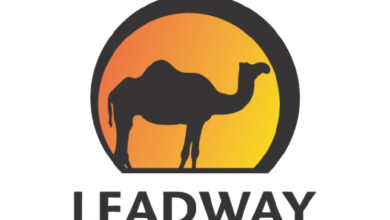Risk-based Approach as an Imperative for Insurance Market

By Dr. Pius Apere
1. Introduction
Risk-based approach, a combination of Risk-based supervision (RBS) and Risk-based capital (RBC) regulation, has been identified as an imperative to enhance insurance market development in any country including Nigeria. Thus, the need to introduce risk-based approach (and to departs from a static and rules-based Approach which uses laws and rules to define acceptable behavior) has been in the front burner of NAICOM’s (the insurance regulator in Nigeria) insurance market development mandate over the past ten years with different implementation deadlines/dates including 2024 which could not be achieved due to several obvious reasons.
Risk-based supervision (RBS) is a dynamic approach of assessing the probability and severity of material risks facing an insurer. In risk-based supervisory setting, the supervisor is equipped with tools and knowledge to examine the business of insurers through offsite monitoring and onsite inspection processes: evaluation of risk profile and adequacy of risk management systems, quality and effectiveness of corporate governance, market conduct, and even overall strategic positioning. In other words, RBS requires supervisors to review the manner in which insurers are identifying, analyzing and controlling risks, i.e. assessing the probability and severity of the material risks to which insurers are exposed to, and the effectiveness of the controls in reducing the probability of risk events.
The principle of proportionate risk-based approach is also an important consideration for the application of RBS in the development of insurance market, especially in markets with conventional insurers, small insurers or micro-insurers and insurance products with lower risk profiles. This requires that supervisors assess compliance with a regulatory framework in a manner proportionate to the nature, scale and complexity of the risks inherent in the business of insurers, as there is no “one-size-fits-all” approach for the application of RBS.
Risk-based capital is a financial regulation that requires insurers to hold an amount of capital that is proportional to the risk they are exposed to. It is a measure of the minimum amount of capital an insurer must hold (enough to absorb potential losses) arising from the risk it is exposed to. The RBC regulation offers only a point-in-time assessment of capital levels and is essentially a retrospective view of capital, which differs from Solvency II approach, being a prospective view of capital, uses a one-year capitalization time horizon. The RBC requirement can be defined as the statutory minimum level of capital required of an insurer to hold in proportion to its size and risk.
This paper highlights why risk-based approach works better as an imperative for insurance market development than the rules-based approach with increasing absolute minimum capital requirements.
2. Brief Overview of Nigerian Insurance Market Development
The insurance market development in Nigeria has often been constrained by an absence of innovation, limited technical skills (e.g. qualified actuaries) at insurers as well as at supervisory and policy making levels, and short-term management priorities due to the adoption of rules-based approach. Thus, this market is less developed and such is often fragmented and heavily reliant on compulsory insurances where irrational competitive behavior usually leads to low profitability. Thus, the market has provided little space for investment in new ways of doing business, improvements in processes and new products development, or in acquiring and developing technical skills. However, NAICOM had been working assiduously to address some of them over time.
In particular, NAICOM had put in place an actuarial capacity training programme for the insurance industry ahead of commencement of the RBS policy in August 2021 to address the problem of dearth of actuarial professionals that is likely to hinder the successful implementation of the RBS. Furthermore, in January 2024, the University of Lagos, in partnership with Nigerian Actuarial Society (NAS), has achieved the Institute and Faculty of Actuaries (IFoA) UK accreditation for its Postgraduate Master of Science degree programme in Actuarial Science, as a pathway to IFoA qualification. This accreditation would no doubt support the training of actuarial professionals required for the development of insurance market in Nigeria over the long term.
3. Reasons to Transition to Risk-based Approach
<span;>There had been a clarion call over the years in the Nigerian insurance industry for a greater focus on the introduction of risk-based capital regulation and risk-based supervision, as key priority areas to create robust, efficient, and inclusive insurance market development in Nigeria in line with international best practice. The increases in the absolute minimum capital requirement in the industry so far does not appear to have delivered a lasting improvement in some key financial performance indicator/metrics that could provide space to invest in innovation (e.g. in new product development, digital marketing etc.)
Sequel to the clarion call, NAICOM, had been planning since 2015 to move from a rules-based supervision to that of risk-based supervision (RBS) of insurers’ operations in 2017. This laudable plan and timeline did not materialize, having carried out preparative and proactive steps for take-off of the RBS such as release of guidelines for RBS with feedback mechanism from insurances companies, enterprise risk management and code of corporate governance, and also conducted a verification exercise of capital resources within individual insurance companies etc.
A prerequisite for good and effective RBS is that the insurance regulator needs to have a good knowledge of the insurance companies, insurance industry and the operating environment. These can all be observed by creating a risk profile of an insurance company having considered the company’s activities, the risks in those activities, quality of risk management process and the capital required to support its operations.
If RBS is implemented with an appropriate RBC methodology, there will be no need to re-introduce the suspended Tier-Based Minimum Solvency Capital (TBMC) in the future. This policy (TBMC) has been severely criticized for not being able to provide a level playing field for all insurers, negates the true concept of RBC requirement etc. Furthermore, it is quite unfortunate that the long-awaited review of Insurance Act 2003, Consolidated Insurance Bill 2020, to provide the expected legal framework to back only the implementation of risk-based approach but also the overdue and failed recapitalization exercises could not be signed into law under the 9th National Assembly, similar to other recorded failed attempts to review the Act in 2008, 2016 and 2018.
Thus, the industry stakeholders’ expectations of the Consolidated Insurance Bill 2020 to boost the insurance market development to lofty heights in the future had been dashed, a source of concern, despite the former President Muhammadu Buhari’s pledge made publicly on Thursday 14th October 2021, during his conferment as the Grand Patron of the Chartered Insurance Institute of Nigeria (CIIN), that “He will hasten the signing of the Consolidated Insurance Bill 2020 once it lands on his desk”. The same Bill is still gasping for breath to see the light of the day in the current 10th National Assembly.
The above is a clear indication that the importance of insurance sector in the economic growth and development of the nation, which cannot be over emphasized, has not seen to be fully acknowledged and/or understood by those in authority to review and sign the Bill into law, having considered the 15 bills sent to the former President for assent immediately before he left office on 29th May 2023. Therefore, there is great uncertainty on the proposed date of implementation of the risk-based approach in 2024 to support the insurance market development,
4. Benefits of Risk-based Approach In Insurance Market Development
Risk-based approach could advance insurance market development in the following ways:
1. Develops and improves professionalism, in-house capacity and technical skills of insurers and regulator. This allows leadership to think of risks rather than rules leading to innovation;
2. Aligns incentives to business actions, encouraging and rewarding actions that move towards market development outcomes. (e.g. Management can be rewarded for decisions that better manage risks). This enhances the quality of decision making in firms including allocation of capital to align with business strategies which have longer term implications for the business, its policyholders and shareholders.
3. Allows insurance companies to play a greater role in investment markets and development, by reducing constraints on investment activities and encouraging those that contribute to broaden economic development
<span;>4. Encourages and rewards investment in data collection and analysis ;
5. Market structures constraining innovation (e.g. excessively fragmented markets, irrational competition, inadequate technical skills, lack of reliable data etc.) can be addressed creating an environment for change;
6. Can offer proportionate relief to low-risk innovations that reach underserved and unserved segments, thereby facilitating inclusive insurance (e.g. micro- insurance).
7. Ensures scarce resources of regulators to be directed at key priority areas by allocating resources to insurers with the greatest risk;
8. Improves risk management by encouraging insurers to manage their risks more effectively by aligning capital requirements with the level of risk they are exposed to.
9. It promotes greater transparency and market discipline by requiring insurers to disclose their capital levels and risk exposures to regulators, investors and other stakeholders.
10. It helps to ensure the safety and soundness of insurers, reducing the risk of insolvency and promoting financial stability.
5. Challenges of Risk-based Approach In Insurance Market Development
The challenges and criticisms of risk-based approach in advancing insurance market development are as follows:
1. There is likely to be an apprehension among the insurance players/stakeholders (i.e. pushback from insurers, clients and brokers) especially at the initial stages of implementation of RBS, particularly in the areas of risk management and governance, data collection, and actuarial expertise;
2. RBC being viewed as a compliance item rather than a business tool;
3. The RBS process focuses heavily on off-site surveillance. It is therefore extremely data intensive and thus it is unlikely that insurance companies will be able to provide data in a seamless and automated manner to the regulator on a regular basis due to existing poor data quality and inappropriate IT systems;
4. Possible lack of sufficient regulatory guidance on transitionary measures for the industry, inadequate training and development programs to instill a risk-based approach/culture;
5. The regulator seems to be ahead of the industry’s preparedness and the availability of resources, capacity, and skills for the application of RBS. However, there is no enough documentary evidence to corroborate the above claim from the regulator’s website.
6. This may not be effective in capturing systemic risk, which is the risk of a widespread collapse of the financial system.
7. This is a complex approach, which can be difficult and expensive to implement, particularly for smaller insurance companies with the limited resources. The foregoing could even be applicable to the regulator if the Government policy on compulsory 50 per cent deduction from internally generated revenue of all government enterprises including NAICOM is being implemented.
6. Conclusion
The introduction of risk-based approach in Nigeria insurance industry has been well overdue relative to some other African countries such as Kenya, Uganda, South Africa etc. This needs the Government’s support for effective and timely implementation to improve the insurance market development in Nigeria leading to insurance companies’ ability to underwrite large volume of business and material risks in order to be competitive globally.
Dr Pius Apere (PhD/FCII) is an Actuarial Scientist and Chartered Insurer and Chairman/CEO, Achor Actuarial Services Limited.





